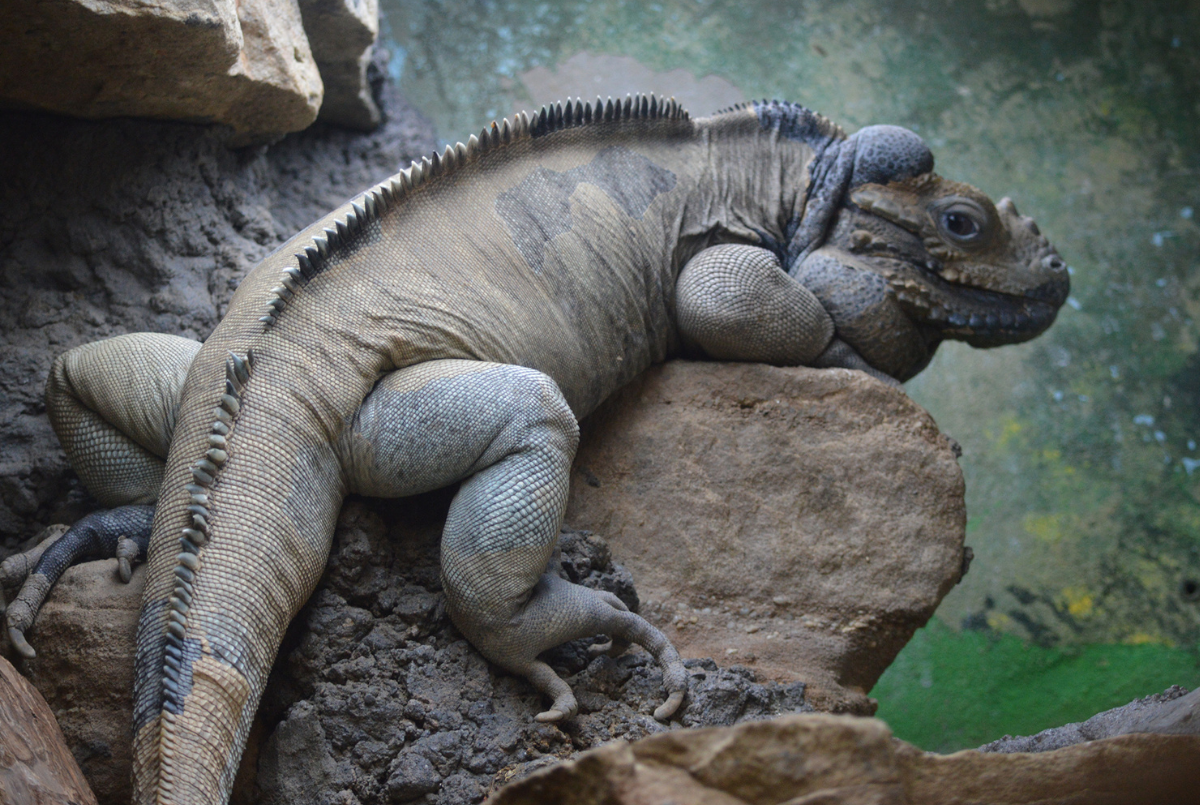Rhinoceros Iguana

Basic Information:
Scientific Name: Cyclura cornuta
Habitat: While rhinoceros iguanas can be found throughout Hispaniola, they are primarily found of Isla Beata and the Barahona Peninsula.
Diet: Rhinoceros iguanas are mostly herbivores and primarily eat leaves, flowers, berries, and fruits. Though they have occasionally been spotted eating small animals if the opportunity arises.
Size: 2 to 4.5 feet long
Weight: 10 to 20 pounds
Lifespan: 16 to 17 years in the wild. Up to 20 years in human care.
Distribution Map:
I.U.C.N. Conservation Status:

What does this mean?
Endangered – a species determined by the International Union for Conservation of Nature (I.U.C.N.) to possess a very high risk of extinction as a result of rapid population declines of 50 to more than 70 percent over the previous 10 years (or three generations), a current population size of fewer than 250 individuals, or other factors.
Our Rhinoceros Iguana:
Blackfoot (Male) – Born November 30, 1997
About Rhinoceros Iguanas:
Known for their large size and distinct “horn” like protrusion on their nose, this species of lizard is endemic to the Caribbean island of Hispaniola. While they are known for being very calm and relaxed while foraging for their herbivorous diet, they are capable of delivering a vicious bite or scratch when necessary or threatened. Unfortunately, due to a multitude of factors from the pet trade, human hunting, and habitat destruction, this species has been on the decline with only 10,000 to 16,000 left in the wild.
Did You Know?!
- The purpose of a Rhinoceros Iguana’s horn is not fully known. However, it is thought to be used during courtship.
- Male rhinoceros Iguanas are known to put on elaborate displays of head bobbing while trying to court a female. They will also erect their spines and become more aggressive than usual during this time.
- Rhino iguanas are primarily found on the ground in rocky environments unlike a lot of other iguanas which tend to prefer trees and forests.
